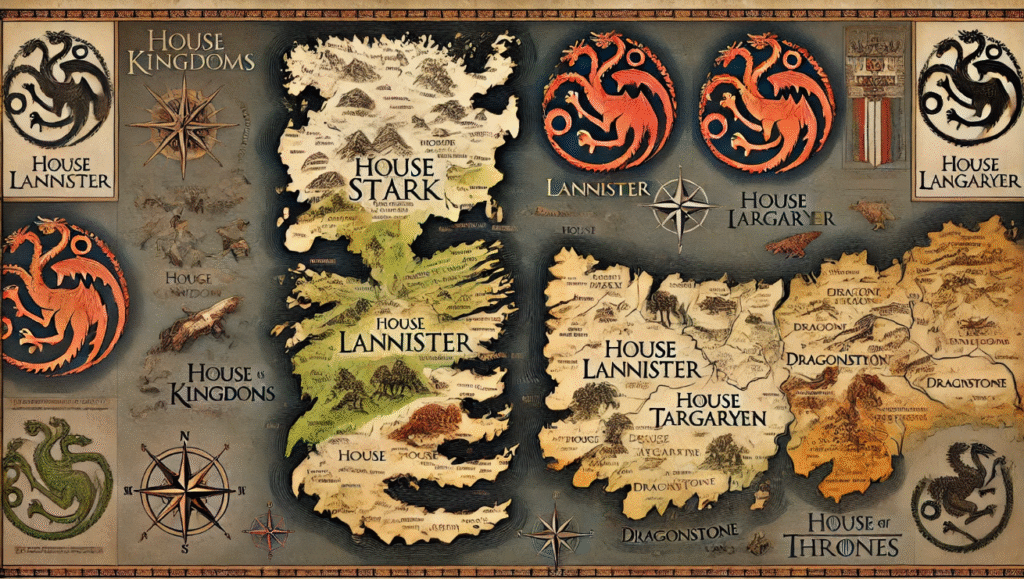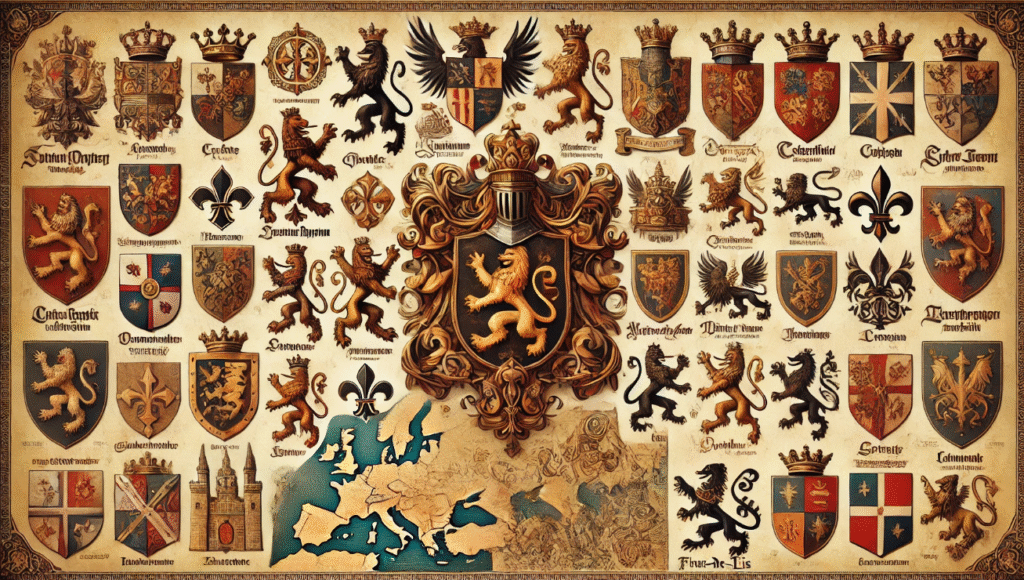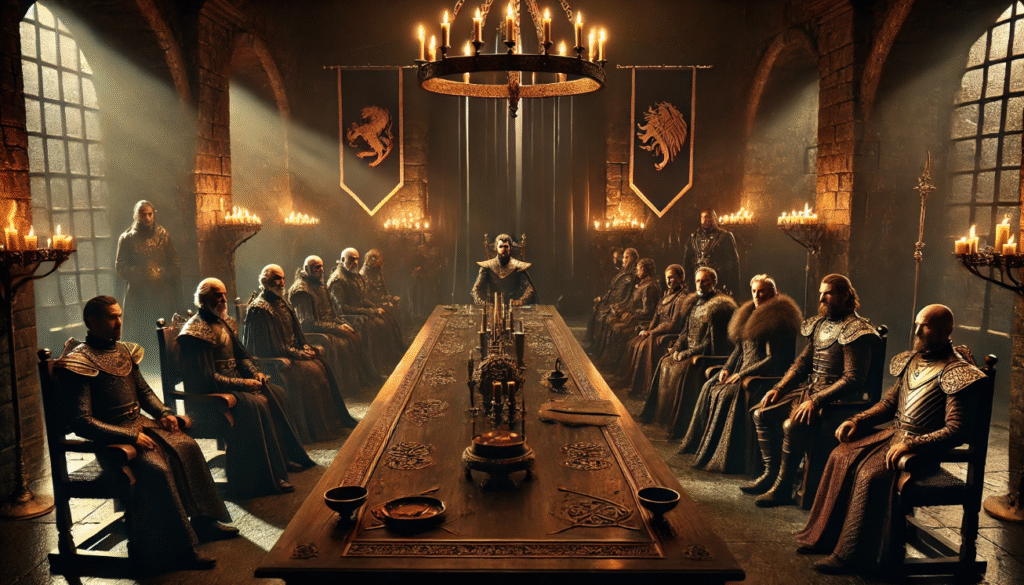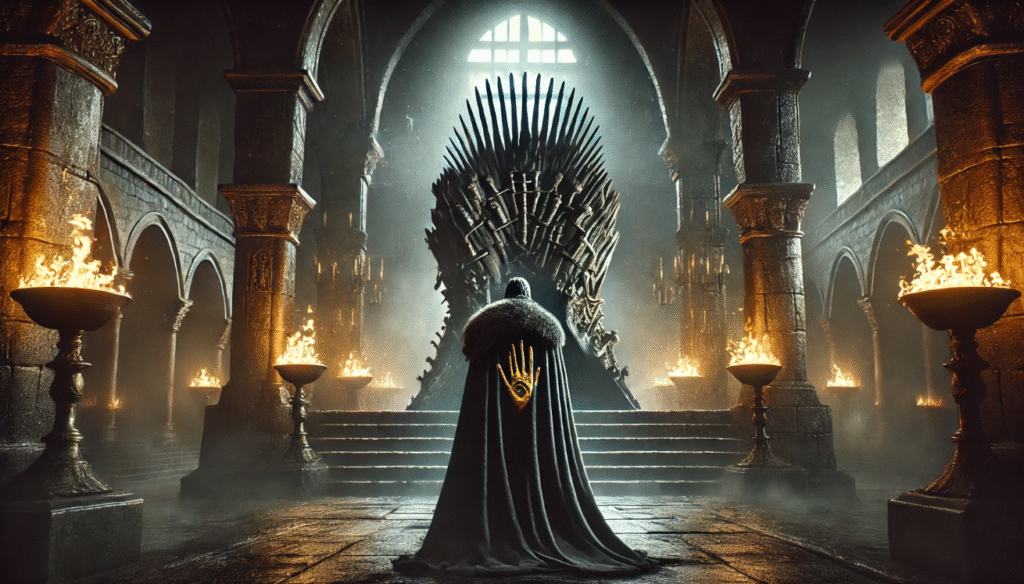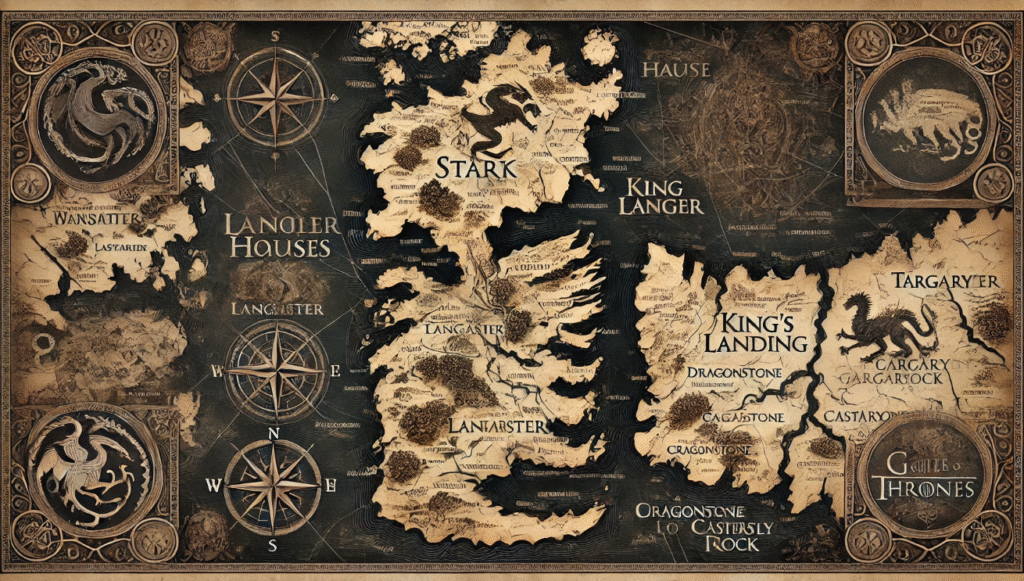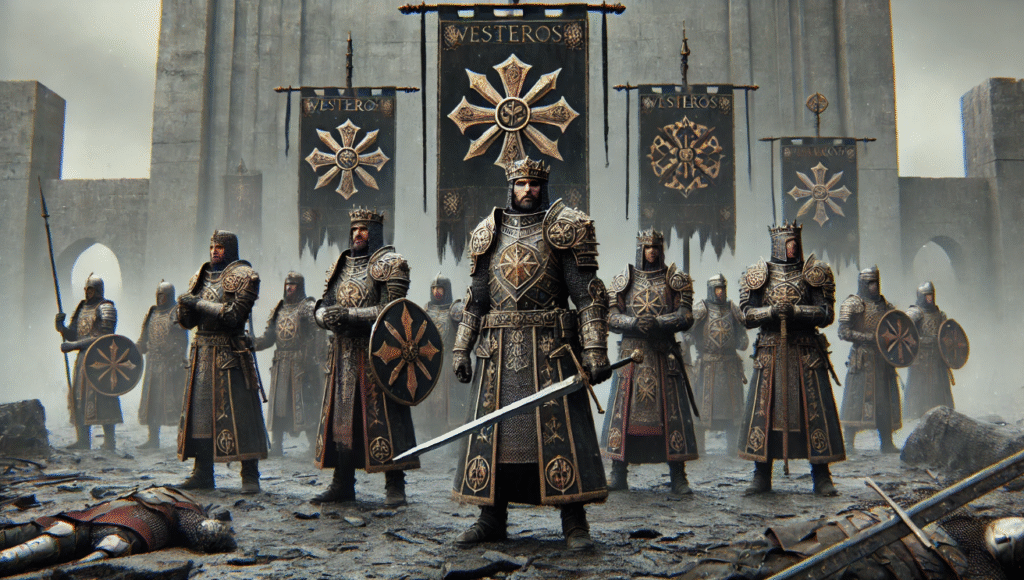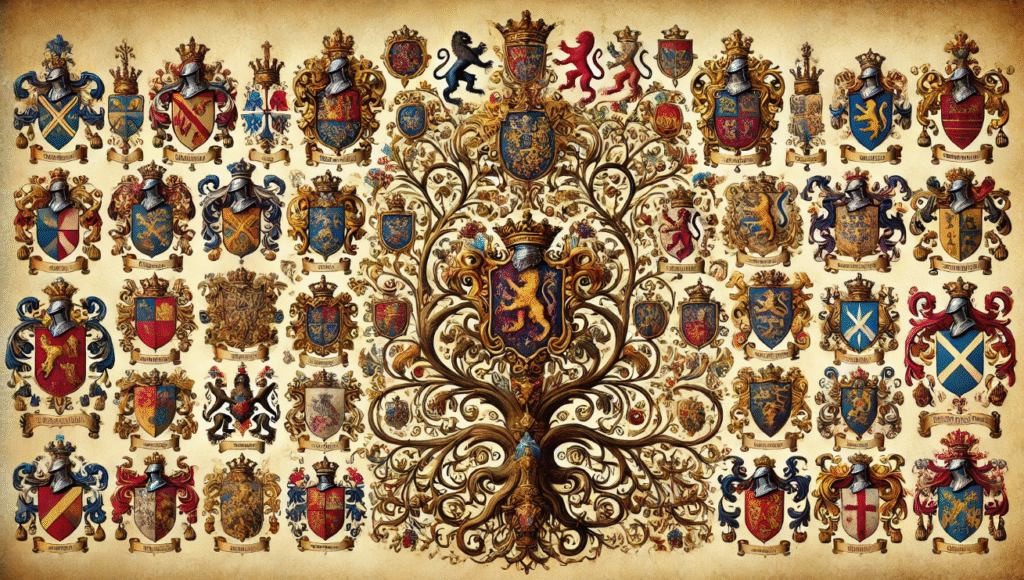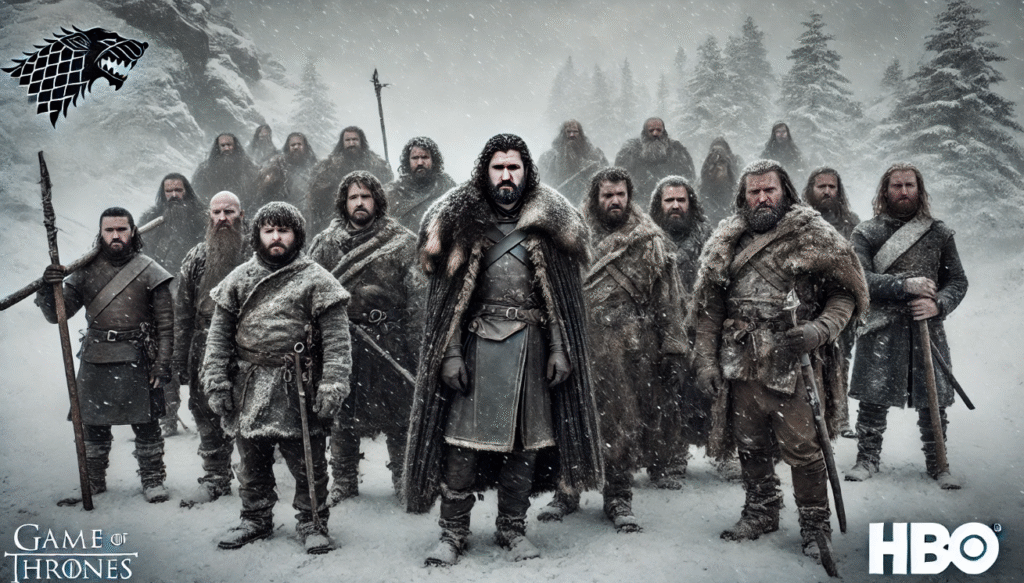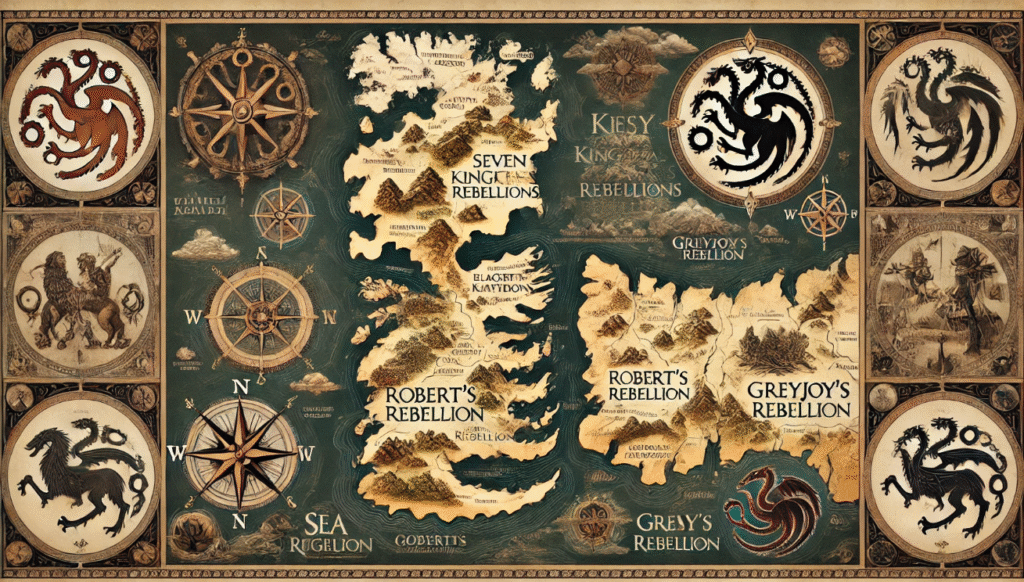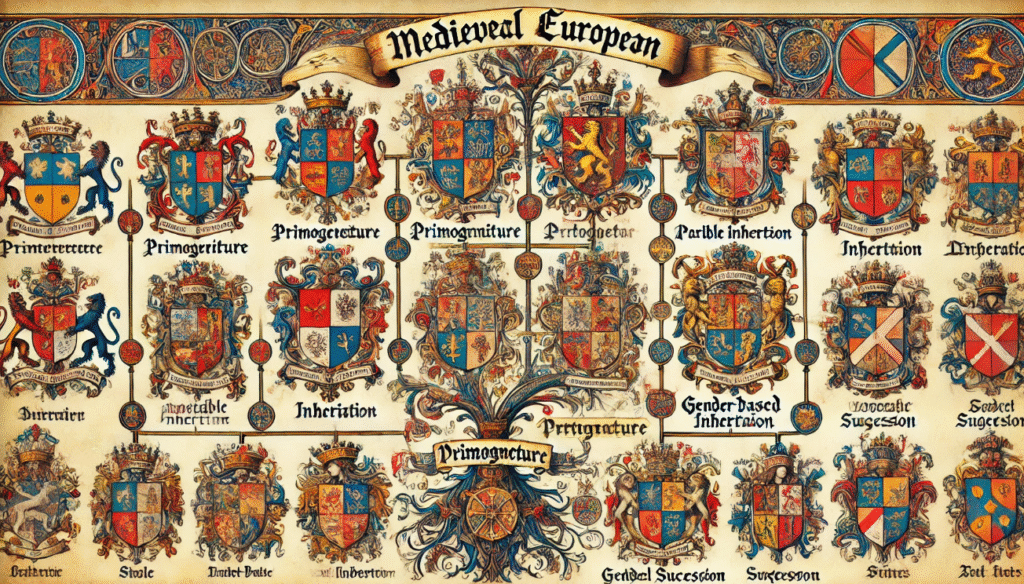
The Origins and Establishment of the Iron Bank
The Creation of the Iron Bank
Braavos, a city-state located in the Free Cities of Essos, was founded by a group of runaway slaves and escaped prisoners around 800 years before Aegon’s Conquest. Its establishment was marked by a commitment to freedom and independence, which laid the foundation for the city’s unique culture and political structure. One of the most significant institutions to emerge in Braavos was the Iron Bank, which played a crucial role in the economic and political affairs of the Free Cities. The bank faced early challenges in establishing its credibility and influence, but it eventually became a powerful force in the region, providing loans to various governments and even funding wars.
Core Principles and Functions
The Iron Bank operates as a powerful and influential financial institution in the world of Westeros. It engages in lending money to various parties, including governments, noble houses, and individuals. The bank charges interest rates on these loans, which can be quite high, and it is known for being strict in enforcing repayment. The nature of the bank’s transactions is often shrouded in secrecy, and it is said to place a high value on loyalty and discretion. This means that the bank’s clients are expected to maintain the utmost confidentiality about their dealings with the institution. The bank’s reputation for being unyielding and ruthless in collecting debts has made it a feared entity in the world of finance.

The Iron Bank’s Political Influence
The Bank’s Reach Beyond Braavos
The Iron Bank of Braavos holds significant influence over other Free Cities, Westeros, and beyond due to its immense financial power. Its ability to provide substantial financial support to various factions can tip the balance of power in political conflicts, making it a key player in shaping the political landscape of the region. Notable leaders and factions who have borrowed from the Iron Bank include the Lannisters, who sought financial assistance during their time of need, and Stannis Baratheon, who also turned to the bank for support in his pursuit of the Iron Throne. These interactions highlight the bank’s significant role in the power struggles of Westeros and the impact of its financial support on the political dynamics of the realm.
The Bank’s Tactics: Loaning and Collecting Debt
The Iron Bank of Braavos is known for its strategic lending practices to different factions across the Seven Kingdoms. They carefully assess the financial stability and potential for repayment of each faction before providing loans. The Iron Bank also demands collateral and repayment terms that ensure they will be repaid, often with high interest rates. In the event of failure to repay their loans, the Iron Bank enforces strict consequences, including financial repercussions such as increased interest rates and penalties, as well as political repercussions such as withdrawing support and funding for the defaulting faction. One notable case study is the Lannisters’ substantial debt to the Iron Bank, which led to increased pressure and demands for repayment.
The Bank as a Shadow Ruler
The Iron Bank has a significant influence on shaping major events and decisions from behind the scenes. With its vast wealth and resources, the bank has the ability to manipulate leaders and situations for its benefit. This can be seen in its involvement in financing wars and conflicts, where the bank strategically lends money to certain factions in order to further its own interests. The delicate balance between power and profit is a key factor in the bank’s actions, especially in times of war when the stakes are high. Overall, the Iron Bank plays a crucial role in shaping the course of major events and decisions, often exerting its influence in subtle but impactful ways.

The Iron Bank’s Relationship with the Westerosi Kingdoms
The Lannisters’ relationship with the Iron Bank is a key aspect of their reign in Westeros. As their debt to the bank continues to mount, it greatly affects their ability to politically maneuver and maintain their power. The pressure from the Iron Bank forces the Lannisters to make strategic decisions in order to repay their debts and keep the bank on their side. This dynamic plays a significant role in shaping the Lannisters’ rule and adds a layer of complexity to their political machinations within.
The Stannis Baratheon Loan is a fascinating case study in how the Iron Bank provided financial support to Stannis during his campaign for the throne. The Iron Bank’s decision to lend money to Stannis demonstrates the complex dynamics between borrowing money for war and the political obligations it creates. Stannis’ debt reveals a lot about the bank’s methods and how it uses financial leverage to influence political outcomes. This case study sheds light on the powerful role that financial institutions can play in shaping the course of political events.
The Iron Bank of Braavos holds significant influence over the finances of Westeros, as it is one of the largest and most powerful financial institutions in the known world. The bank often lends money to the realm and its ruling houses, and its influence can have a major impact on the stability of the kingdom. When the ruling houses of Westeros are in debt to the Iron Bank, they are often at the mercy of the bank’s demands. This can lead to political instability and power struggles as the bank seeks to ensure that its loans are repaid. In extreme cases, the Iron Bank has been known to support rebellions or even fund the enemies of those who are in debt to them.

The Iron Bank’s Influence on Global Politics
Financial Support for Foreign Powers
The bank plays a significant role in funding external conflicts beyond the borders of Westeros. Its relationships with key powers such as the Iron Throne, the Free Cities, and distant lands have a direct impact on the financing of these conflicts. In Essos, the bank’s involvement in power struggles, particularly with factions like the Dothraki, is well-documented. Its financial support often shapes the outcomes of these conflicts and has far-reaching consequences for the political landscape of the region.
A Power Broker Between the East and West
The Iron Bank plays a crucial role in balancing power dynamics between the Free Cities and Westeros by serving as a financial powerhouse that can influence political decisions. Its international dealings shape the geopolitical landscape of the known world by providing loans and financial support to various factions and governments, thereby influencing their actions and alliances. This gives the Iron Bank significant leverage in shaping the balance of power and maintaining stability in the region.
The Iron Bank’s Influence in Modern-Day Politics (Real-World Parallels)
Comparing the Iron Bank to Real-Life Financial Institutions
The Iron Bank, as depicted in the Game of Thrones universe, can be compared to real-life financial institutions such as central banks, the International Monetary Fund (IMF), and multinational investment firms. Like these institutions, the Iron Bank wields significant influence in the world of geopolitics through the power of money and financial leverage. In both the fictional world of Game of Thrones and in real life, debt and economic leverage play a crucial role in shaping the destinies of nations. The lessons we can learn from the Iron Bank’s role in the show can provide valuable insights into how debt, loans, and financial leverage are powerful tools for shaping global policy and influencing the actions of governments and leaders.

The Future of the Iron Bank’s Power
Potential Shifts in Power Dynamics
The Iron Bank, as depicted in the series “Game of Thrones,” is a powerful financial institution that operates independently of any one political entity. However, in the real world, current political trends could potentially impact the future of the Iron Bank. For example, shifts in global economic policies, trade agreements, and geopolitical tensions could influence the bank’s investment strategies and overall stability. As the world continues to change, the Iron Bank may need to adapt its operations to navigate through uncertain political landscapes. This could involve diversifying its investment portfolio, establishing new partnerships, or reevaluating its lending practices. Additionally, the bank may need to consider the long-term implications of political decisions on the global economy and adjust its approach accordingly.
If the Iron Bank’s influence is challenged by powerful entities such as Daenerys Targaryen or other rising powers in Westeros, it could lead to a significant shift in the balance of power in the realm. The bank’s ability to fund wars and support certain factions could be compromised, leading to potential shifts in alliances and allegiances. This could have far-reaching effects on the political and military landscape of Westeros, potentially leading to upheaval and conflict as different factions vie for power and control.

Conclusion
The Iron Bank holds significant political influence in the world of Game of Thrones, serving as a power broker and important financial institution. Its role in the show reflects the real-world influence of financial institutions in shaping political discourse. This connection highlights the lasting impact of money and power in both fictional and real contexts. Understanding the parallels between the bank’s influence in Westeros and the centrality of finance in our own world enriches the narrative of Game of Thrones and provides insight into how money and power will continue to shape the political landscape.


